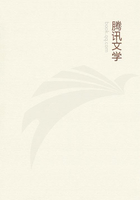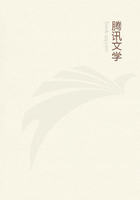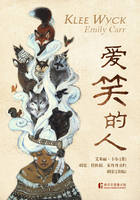To the consideration of final causes such assertions as these belong: “That the hairs of the eyelids are for a protection to the eyes; that the thick skins and hides of living creatures are to defend them from heat and cold; that the trees have leaves so that the fruit may not suffer from sun and wind” (16): the hair is on the head on account of warmth; thunder and lightning are the punishment of God, or else they make fruitful the earth; marmots sleep during the winter because they can find nothing to eat; snails have a shell in order that they may be secure against attacks; the bee is provided with a sting. According to Bacon this has been worked out in innumerable different ways. The negative and external side of utility is turned round, and the lack of this adaptation to end is likewise drawn within the same embrace. It may, for example, be said that if sun or moon were to shine at all times, the police might save much money, and this would provide men with food and drink for whole months together. It was right that Bacon should set himself to oppose this investigation into final causes, because it relates to external expediency, just as Kant was right in distinguishing the inward teleology from the outward. As against the external end, there is, in fact, the inward end, i.e. the inward Notion of the thing itself, as we found it earlier in Aristotle (Vol. II. pp. 166-163). Because the organism possesses an inward adaptation to its ends, its members are indeed likewise externally adapted as regards one another; but the ends, as external ends, are heterogeneous to the individual, are unconnected with the object which is investigated. Speaking generally, the Notion of nature is not in nature itself, which would mean that the end was in nature itself; but as teleological, the Notion is something foreign to it. It does not have the end in itself in such a way that we have to accord respect to it - as the individual man has his end in himself and hence has to be respected. But even the individual man as individual has only a right to respect from the individual as such, and not from the universal. He who acts in the name of the universal, of the state, as a general does for instance, does not require to respect the individual at all; for the latter, although an end in himself, does not cease to be relative. He is this end in himself, not as excluding himself and setting himself in opposition, but only in so far as his true reality is the universal Notion. The end of the animal in itself as an individual is its own self-preservation; but its true end in itself is the species. Its self-preservation is not involved in this;for the self-preservation of its individuality is disadvantageous to the species, while the abrogation of itself is favourable thereto.
Now Bacon separates the universal principle and the efficient cause, and for that reason he removes investigation into ends from physics to metaphysics. Or he recognizes the Notion, not as universal in nature, but only as necessity, i.e. as a universal which presents itself in the opposition of its moments, not one which has bound them into a unity - in other words he only acknowledges a comprehension of one determinate from another determinate going on into infinity, and not of both from their Notion. Bacon has thus made investigation into the efficient cause more general, and he asserts that this investigation alone belongs to physics, although be allows that both kinds of investigation may exist side by side. (17) Through that view he effected a great deal, and in so far as it has counteracted the senseless superstition which in the Germanic nations far exceeded in its horrors and absurdity that of the ancient world, it has the very merit which we met with in the Epicurean philosophy. That philosophy opposed itself to the superstitious Stoics and to superstition generally - which last makes any existence that we set before ourselves into a cause (a Beyond which is made to exist in a sensuous way and to operate as a cause), or makes two sensuous things which have no relation operate on one another. This polemic of Bacon’s against spectres, astrology, magic, &c., (18) can certainly not be regarded exactly as Philosophy like his other reflections, but it is at least of service to culture.
He also advises that attention should be directed to formal causes, the forms of things, and that they should be recognized. (19) “But to give an exact definition of the meaning which Bacon attaches to the phrase formal causes is rather difficult; because his language upon this subject is uncertain in a very remarkable degree.” (20) “It may be thought that he understood by this the immanent determinations of things, the laws of nature; as a matter of fact the forms are none else than universal determinations, species, &c.” (21) He says: “The discovery of the formal is despaired of. The efficient and the material (as they are investigated and received, that is as remote causes, without reference to the latent process leading to the forms) are but slight and superficial, and contribute little, if anything, to true and active science. For though in nature nothing really exists beside individual bodies, performing pure individual acts according to a fixed law, yet in philosophy this very law, and the investigation, discovery and explanation of it, is the foundation as well of knowledge as of operation. And it is this law, with its clauses, that I mean when I speak of Forms . . . Let the investigation of Forms which are eternal and immutable constitute metaphysics.
Whosoever is acquainted with Forms embraces the unity of nature in substances the most unlike.”
(22) He goes through this in detail, and quotes many examples to illustrate it, such as that of Heat.















